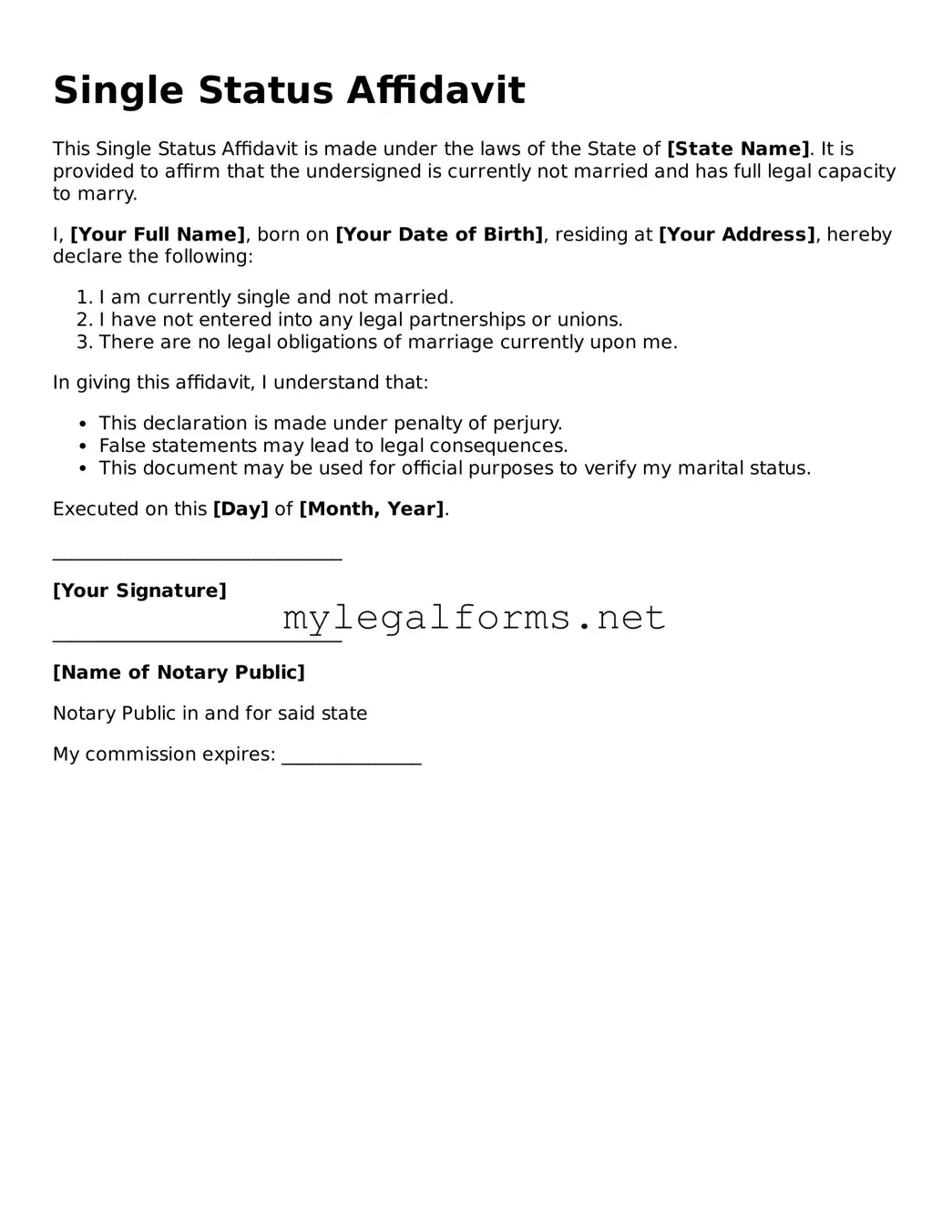Attorney-Approved Single Status Affidavit Form
The Single Status Affidavit is a legal document that verifies an individual's unmarried status, often required for marriage in a foreign country. This form serves as a declaration that the signer is not currently married and is free to enter into a new marriage. Understanding its purpose and the process for obtaining it can help streamline international marriage procedures.
Launch Single Status Affidavit Editor

Attorney-Approved Single Status Affidavit Form
Launch Single Status Affidavit Editor

Launch Single Status Affidavit Editor
or
⇓ PDF Form
Complete the form at your pace — fast
Finish your Single Status Affidavit online and download the final version.